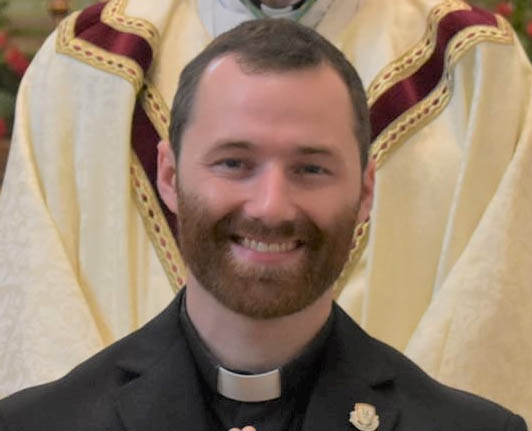Dcn. Julian Druffner
Special to the Catholic Herald
Editor’s note: This is first in a series of articles submitted by the Diocese of Superior to educate readers and commemorate the church’s Eucharistic Revival.
Throughout the past several years, Center for Applied Research in the Apostolate statistics have revealed that doubting the true presence of Christ in the holy Eucharist has become a frightening reality for the church.
Many studies suggest numbers that fall between 20-30 percent of Catholics that deny the true presence. This reality presents a series of problems that divide our family of faith today, especially when we know the Eucharist to be the source and summit of our faith. However, the greatest expression and manifestation of Christ’s sacrifice at Mass inspires us to continue turning to the Eucharist and encouraging others to do so as well. Pope St. John Paul II emphasized this well in his letter Ecclesia De Eucharistia. He states that “the Church draws her life from Christ in the Eucharist; by him she is fed and by him she is enlightened.”
Without our faith in the Holy Eucharist, the church loses this vital source of spiritual nourishment that enlightens us and gives us life as Catholics.
The Eucharist not only helps us as individuals who pursue a close relationship with Christ, but Jesus sustains the church as a community in the Blessed Sacrament. From all walks of life, differences of opinion, and challenges that arrive in our communities of faith, holy Communion feeds the church as God’s greatest expression of love. When we are invited to partake in the one body of Jesus, we find oneness not only by our gathering, but by receiving the same sacrifice of Christ. He is the source of unity and the source of communion. By receiving Jesus with openness and faith, we receive God who invites us to heal our divisions and be united more closely to one another.
As we are men and women who believe in the true presence of Christ, Jesus orients the people of God to love others outside of our parish community. The Eucharist sustains us in our desire to love others and live into a life of communion.
When we hear the priest or deacon proclaim “go forth, the Mass is ended,” we know that the sacrifice that we have just received moves us to live the love of Christ in the world. The language of the liturgy invites us to reach out to others and draw them into his mystical body. Our faith beckons us to respond to this invitation and live the love of Christ that we have just received in the liturgy.
The Eucharist is also our source of transformation as we make our journey toward heaven. In his text The Spirit of the Liturgy, Cardinal Josef Ratzinger, now Pope Emeritus Benedict XVI, states that “the blessed sacrament contains a dynamism, which has the goal of transforming mankind and the world into the new heaven and new earth, into the unity of the risen body.” Despite division, the Eucharist creates an affective communion that extends beyond the limits of our community towards its finality in heaven. When Christ comes again in glory, God will bring about a Parousia, a second coming, that will transform the church and the whole world together as one. The Eucharist gives us a taste of this reality and reminds us of heaven every time we go to Mass. As the church journey’s towards our true home, the Eucharist inspires us with the hope of Christ who prepares us for heaven and transforms us with his love.
In conclusion, the Eucharist sustains the church as a community against division, that what has been given to us in time may be our healing for eternity. As part of the mission of the church community, the charity that stems from the holy Eucharist makes us more loving, more effective, and more generous disciples of Christ. With confidence in God, may the Lord continue to draw us into his divine presence, wherein we find his true body as the sustenance of unity.

Dcn. Julian Druffner
